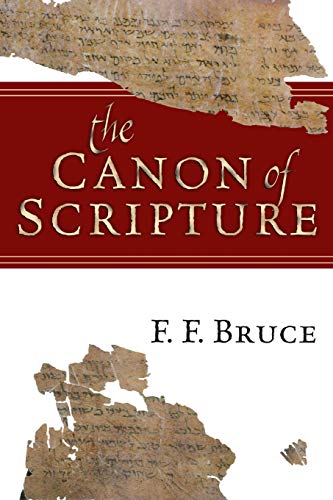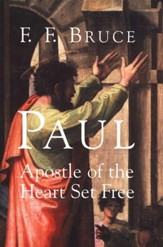
Quotes by F.F. Bruce
The best way to destroy an enemy is to turn him into a friend.
Taken from " Hard Sayings of Jesus " by, F.F. Bruce, page 73. (c)1973 InterVarsity Christian Fellowship of the USA, Revised edition. Used by permission of InterVarsity Press, P.O. Box 1400, Downers Grove, IL 60515. www.ivpress.com.
[God] bestows His blessings without discrimination. The followers of Jesus are children of God, and they should manifest the family likeness by doing good to all, even to those who deserve the opposite.
Persistence in prayer for someone whom we don’t like (Lk. 6:28), however much it goes against the grain to begin with, brings about a remarkable change in attitude.
Taken from " Hard Sayings of Jesus " by, F.F. Bruce, page 73. (c)1973 InterVarsity Christian Fellowship of the USA, Revised edition. Used by permission of InterVarsity Press, P.O. Box 1400, Downers Grove, IL 60515. www.ivpress.com.
God is the archetypal Father; all other fatherhood is a more or less imperfect copy of his perfect fatherhood.
Those who have been justified are now being sanctified; those who have no experience of present sanctification have no reason to suppose they have been justified.
Romans – Tyndale New Testament Commentaries, Eerdmans, www.eerdmans.com, 1998, p. 135.
Any part of the human body can only be properly explained in reference to the whole body. And any part of the Bible can only be properly explained in reference to the whole Bible.
Christian holiness is not a matter of painstaking conformity to the individual precepts of an external law code; it is rather a question of the Holy Spirit’s producing His fruit in the life, reproducing those graces which were seen in perfection in the life of Christ.
The evidence for our New Testament writings is ever so much greater than the evidence for many writings of classical authors, the authenticity of which no-one dreams of questioning. And if the New Testament were a collection of secular writings, their authenticity would generally be regarded as beyond all doubt. It is a curious fact that historians have often been much readier to trust the New Testament than have many theologians.
There is, I imagine, no body of literature in the world that has been exposed to the stringent analytical study that the four Gospels have sustained for the past 200 years. This is not something to be regretted: it is something to be accepted with satisfaction. Scholars today who treat the Gospels as credible historical documents do so in the full light of this analytical study, not by closing their minds to it.
The Gospel is a message of forgiveness: it could not be otherwise, because it is the Gospel of God, and God is a forgiving God… It is to be expected, then, that those who receive the forgiveness which God holds out in the Gospel, those who call Him their Father, will display something of His character and show a forgiving attitude toward others.
Taken from Hard Sayings of Jesus by F.F. Bruce. Copyright(c) 1983. Used by permission of InterVarsity Press, PO Box 1400, Downers Grove, IL 60515, p. 78. www.ivpress.com. http://www.ivpress.com/cgi-ivpress/book.pl/code=288.
But that Jesus of Nazareth could be the expected Messiah, as His disciples maintained, was out of the question. It is unlikely that the status, career and teaching of Jesus conformed in any way with Paul’s conception of the status, career and teaching of the Messiah – but that was not the conclusive argument in Paul’s (pre-converted) mind. The conclusive argument was simply this: Jesus had been crucified. A crucified Messiah was a contradiction of terms.
Paul – Apostle of the Heart Set Free, Eerdmans, 1977, www.eerdmans.com, p. 70-71. Get this book!
Where love is the compelling power, there is no sense of strain or conflict or bondage in doing what is right: the man or woman who is compelled by Jesus’ love and empowered by His Spirit does the will of God from the heart.
Paul – Apostle of the Heart Set Free, Eerdmans, 1977, www.eerdamns.com, p. 21. Get this book!
Paul’s claim [was] that the message he preached was the authentic gospel of Christ. It is this: two things on which Paul pre-eminently insisted – that salvation was provided by God’s grace and that faith was the means by which men appropriated it.
Paul – Apostle of the Heart Set Free, Eerdmans, 1977, p. 102, www.eerdmans.com. Get this book!
[Paul’s] thrice-repeated prayer for the removal of the ailment was answered, not by his deliverance from it, but by his receiving the necessary grace to bear it – not simply to live with it but to be thankful for it. If his ministry was so effective despite this physical weakness, then the transcendent power was manifestly God’s, not his own. Infirmities like this were welcomed, together with the other hardships…if they were the condition on which the power of the risen Christ operated through him. They constantly reminded him not so much of his own inadequacy as of the total adequacy of Christ, in whom, when he was personally most weak, he knew himself to be most strong.
Paul – Apostle of the Heart Set Free, Eerdmans, 1977, www.eerdmans.com, p. 136. Get this book!
The soul’s deepest thirst is for God Himself, who has made us so that we can never be satisfied without Him.


